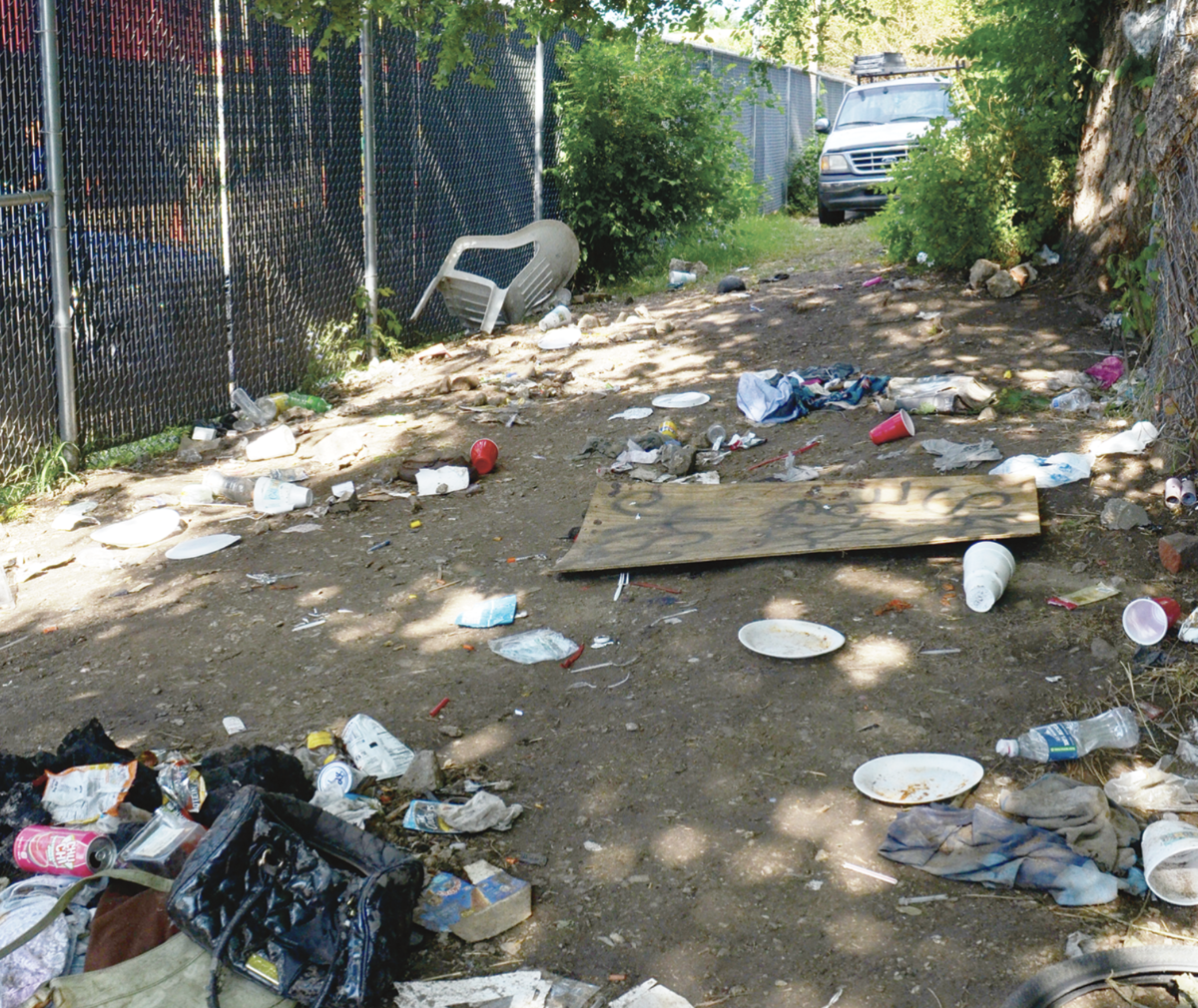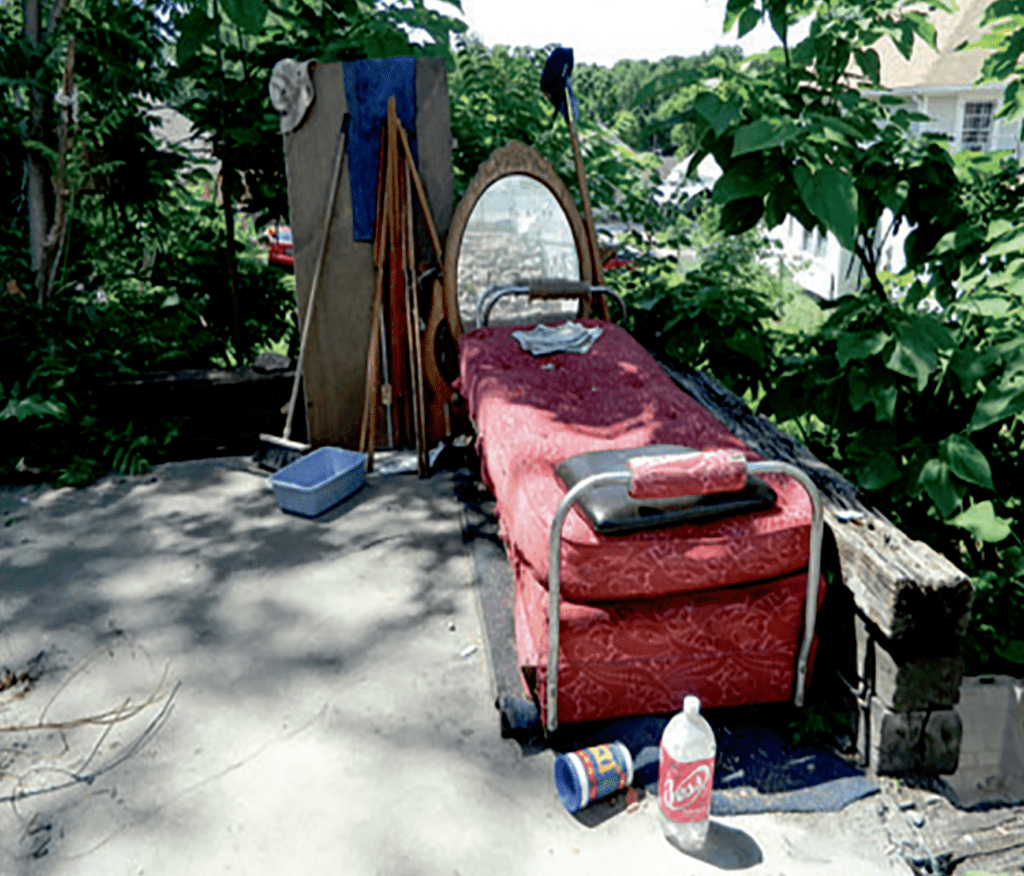
Emily Wheeler
Editorial Assistant
The Northeast Kansas City Working Group (NEKC Working Group) has recently unveiled its Northeast Transformation Plan — a draft of six priorities aimed at addressing homelessness within the Northeast. This draft reflects extensive analysis and discussion, drawing on insights from the 2021 Northeast Housing Solutions Summit.
These six drafted priorities include:
- Priority 1: Adopt an Effective Collaboration Structure
- Priority 2: Establish a Neighborhood Communication System
- Priority 3: Educate the Community and Beyond
- Priority 4: Focus on Services That Help Unsheltered Persons Transition to Permanent Housing
- Priority 5: Create Housing Solutions That Transform Lives
- Priority 6: Promote Wraparound Services
As part of its process in preparing a plan to address homelessness within our community, NEKC Working Group drafted a set of six priorities. Earlier this week, this group launched a survey to gather community feedback on these priorities.
The ongoing survey, which closes at 6 p.m., Aug. 20, aims to educate the community on the draft priorities and collect specific feedback. A community education forum is scheduled for 6 p.m., Sep. 12 at the Northeast Kansas City Chamber of Commerce (2657 Independence Ave) to gather additional input.
“The survey is an effort to bring awareness to the discussion, and to explore if this idea is even achievable,” said District 19 Rep., Ingrid Burnett.
Relevant sources used for drafting this plan include the Northeast Housing Solutions Summit. The 2.5-day virtual summit brought together the NE community with business owners, residents, workers, public safety, neighborhood leaders and community organizations.
This Northeast Housing Solutions Summit was a pivotal event, which underscored the need for a unified strategy to tackle homelessness. “The results of the Housing Solutions Summit in 2021 indicated a need for a cohesive plan for addressing homelessness in the Northeast,” explained Anne Williamson, facilitator of NEKC Working Group.
Participants of the Housing Solutions Summit recommended more collaboration between service organizations and greater involvement of residents, business owners and landlords.
“What we have envisioned based on the summit is a centralized phone number to call if you have an issue,” Rep. Burnett said. “From there you would be directed to a service that we know can address that issue in a timely manner.”
Community response from the Summit was used to inform more than just the Northeast Transformation Plan. “Most of that information collected was additionally used to inform the Zero KC plan,” said Rep. Burnett.
Kansas City’s Zero KC plan — developed by the Houseless Task Force, the Greater Kansas City Coalition to End Homelessness (GKCCEH) and the Housing and Community Development Department — outlines long-term solutions for homelessness within Kansas City.
The Northeast Transformation Plan was started by the NEKC Working Group, led by Rep. Burnett and facilitated by Kansas City-based consulting firm Community Analytics, LLC. NEKC Working Group includes members from public, private and nonprofit sectors.
“Membership has tended to be somewhat fluid,” noted Williamson. Scott Wagner sits as co-chair, representing Mattie Rhodes Center. Rev. Mindy Fugarino from Independence Boulevard Christian Church, Charles Passantino of Passantino Brothers Funeral Home and Bobbi Baker with the Northeast Kansas City Chamber of Commerce are a few members of this core group responsible for crafting the Northeast Transformation Plan.
“The Northeast Transformation Plan is intended to integrate robust analysis and extensive community input from various sources,” explained Williamson. As facilitator, Williamson organizes meetings with various stakeholders — including service providers and neighborhood leaders, to refine said plan.
Funding for the consulting services provided by Community Analytics, LLC, comes from state funds administered through the City of Kansas City. Williamson noted that the delay in starting this process resulted in timing for funding to move through the state to the City’s administrative processes. This process started back up again about 18 months ago, according to Rep. Burnett.
“We received $14,500 from state funds. That has been spent on consultant fees, getting the survey out there and providing space for these events— such as the educational forum,” said Rep. Burnett. Future funding sources include grants and additional state funding.
Feedback on the survey has highlighted dissatisfaction with the lack of open text boxes for detailed input. While the survey will close before the education forum, additional feedback will be collected during the forum.
“The draft priorities will not be finalized until after considering input from the survey, the forum, and public comments,” said Williamson. The final plan’s release date will be determined based on this feedback.
The six drafted priorities outlined in the survey are as follows: Find the survey here.
Priority 1: Adopt an Effective Collaboration Structure
This priority emphasizes the need for better coordination among various organizations serving the homeless population in Northeast Kansas City. By improving collaboration, the goal is to streamline social services and reduce homelessness more effectively. The current fragmented approach necessitates a more cohesive strategy to ensure resources and efforts are optimally utilized. Implementing an effective structure will enhance the overall impact of homelessness interventions in the region.
Priority 2: Establish a Neighborhood Communication System
This priority aims to create a local communication network to provide timely information and address specific homelessness issues in the community. It recognizes that calling the police or using centralized services like 311 and 211 may not always be effective or timely. A neighborhood-based system is proposed to keep residents informed and engaged, while addressing concerns related to homelessness. This approach also seeks to prevent disruptions caused by external groups providing uncoordinated assistance.
Priority 3: Educate the Community and Beyond
This priority focuses on improving relations between housed and unhoused residents and educating the community about their roles and responsibilities. It includes outreach to external groups to coordinate their efforts better and avoid redundant or disruptive actions. Understanding homelessness causes and how to contribute positively is a key component. Educating beyond the local community aims to mitigate issues created by well-meaning but misaligned external efforts.
Priority 4: Focus on Services That Help Unsheltered Persons Transition to Permanent Housing
This priority addresses the urgent need to support unsheltered individuals in finding permanent housing solutions. It recognizes the vulnerability of the unsheltered population and the community concerns related to their presence. The priority is driven by recent legal changes and the historical context of the Northeast’s high unsheltered population. It aims to provide long-term solutions that benefit both the individuals and the community.
Priority 5: Create Housing Solutions That Transform Lives
This priority targets the creation of affordable housing to address the root causes of homelessness. It acknowledges the gap in affordable housing for those with incomes below the federal poverty level and the need for innovative solutions. Collaboration among public, private and nonprofit sectors is essential to provide a range of housing options. Solutions must accommodate various needs, from single-room units to larger family homes.
Priority 6: Promote Wraparound Services
This priority advocates for comprehensive support services tailored to the needs of individuals transitioning from homelessness to permanent housing. Wraparound services include emergency aid, healthcare, mental health counseling and employment assistance, coordinated by multiple organizations. Effective use of such services helps individuals secure and maintain housing.

















